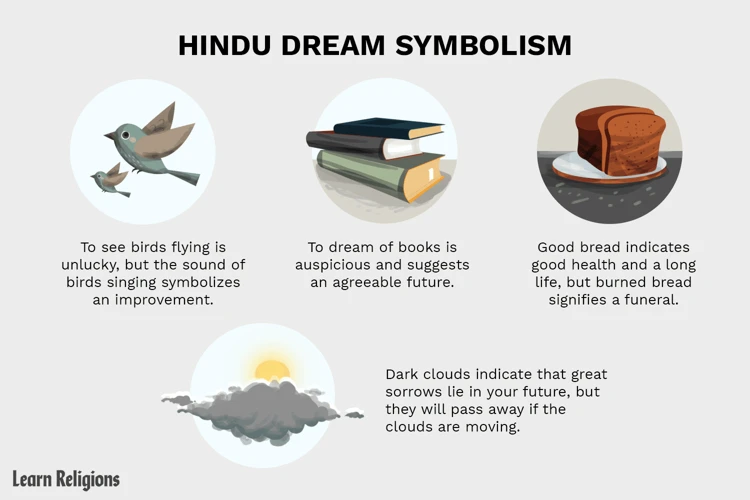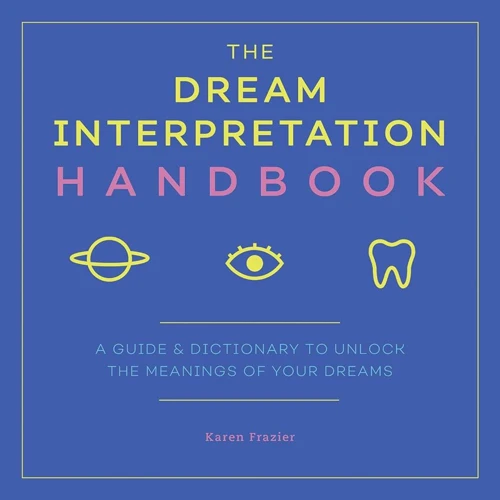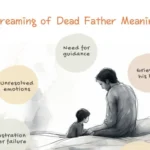Have you ever experienced the bittersweet sensation of dreaming about a lost loved one? These dreams can stir up a whirlwind of emotions, leaving us with a lingering sense of perplexity. The significance of these dreams goes beyond the realm of mere imagination; they have the power to provide comfort, closure, and even guidance. In this article, we will delve into the fascinating world of dreams of lost loved ones, exploring their symbolic meanings, interpreting dreams of specific individuals, providing guidelines for interpretation, and exploring common dream scenarios. Join us on this journey as we uncover the profound and mysterious nature of these dreams.
Common Symbolic Meanings

Dreams of lost loved ones often carry deep symbolic meanings that can provide valuable insights into our emotional and spiritual lives. Here are a few common symbolic meanings associated with these dreams:
- Reconnection: Dreams of lost loved ones can serve as a way to reconnect with them in the realm of our subconscious mind. These dreams may offer a sense of comfort and reassurance that our loved ones are still with us in spirit, even if they are no longer physically present.
- Unresolved Issues: Sometimes, dreaming of a lost loved one can signify unresolved issues or unfinished business that we need to address. These dreams may present an opportunity to confront our emotions, seek closure, or seek forgiveness.
- Healing and Closure: Dreams of lost loved ones can also be a form of healing and closure. They may provide a sense of peace and acceptance, allowing us to come to terms with their loss and move forward with our lives.
1. Reconnection
Dreams of lost loved ones often signify a powerful desire for reconnection with the person who has passed away. These dreams may manifest as vivid and realistic encounters, allowing us to experience their presence once again. During these dream reunions, we may engage in conversations and activities as if they were still alive. Such dreams can provide a deep sense of comfort and solace, as it feels like we are given the opportunity to spend time with our loved ones again. These dreams may also serve as a reminder that the bonds we share with our loved ones are not easily broken, even in death.
2. Unresolved Issues
Dreams of lost loved ones can often be a manifestation of unresolved issues that linger within us. These dreams serve as a reminder that there may be untied emotional knots or unresolved conflicts that need our attention. The presence of a lost loved one in our dreams may indicate the need for closure, forgiveness, or an opportunity to express unaddressed emotions. It is important to pay attention to the emotions that arise during these dreams, as they can provide valuable clues about the underlying unresolved issues we need to address. By acknowledging and working through these emotions, we can take steps towards healing and finding peace.
3. Healing and Closure
Dreams of lost loved ones can play a significant role in the healing process and provide a sense of closure. These dreams have the power to bring forth unresolved emotions and allow us to confront them in a safe space. They offer an opportunity to say the things left unsaid, seek forgiveness, or express gratitude. Through these dreams, we may find solace and acceptance, understanding that our loved ones are at peace. The experience of healing and closure in dreams of lost loved ones can be deeply profound, leaving a lasting impact on our emotional well-being.
Interpreting Dreams of Specific Loved Ones

When it comes to interpreting dreams of specific loved ones, there are nuances and variations that can provide deeper insights into their meaning. Here are a few examples:
- Dreaming of a Deceased Parent: Dreams of deceased parents may symbolize guidance, comfort, or a longing for their presence. These dreams may signify unresolved emotions or the need for parental advice and support.
- Dreaming of a Deceased Spouse: Dreams of a deceased spouse can evoke feelings of love, loss, and longing. They may represent the desire for emotional connection, closure, or a yearning for the support and companionship they provided.
- Dreaming of a Deceased Sibling: Dreams of a deceased sibling can bring to light unresolved issues, shared memories, or the need for emotional healing and reconciliation. They may also represent the bond and connection that continues to exist beyond the physical realm.
1. Dreaming of a Deceased Parent
Dreaming of a deceased parent carries its own unique significance and can evoke a range of emotions. Here are a few possible interpretations:
- Guidance and Support: Dreaming of a deceased parent may be a way for them to offer guidance or support from beyond the physical world. Their presence in the dream can provide comfort and reassurance, reminding us that they are still watching over us.
- Unresolved Issues: These dreams may also signify unresolved issues or unfinished conversations with our deceased parent. They could be a gentle nudge to address any lingering emotions or unfinished business and find closure.
- Spiritual Connection: Dreams of a deceased parent can also serve as a reminder of the spiritual connection we shared with them. They may symbolize a desire to reconnect with their wisdom and values or to seek their guidance in our own lives.
2. Dreaming of a Deceased Spouse
Dreaming of a deceased spouse can be an emotionally charged experience that elicits a mixture of joy, longing, and grief. These dreams often hold deep significance and can serve as a way to reconnect with the love, companionship, and memories shared with our departed spouse. They may offer solace and a sense of continued connection, reminding us of the love that transcends physical boundaries. It’s important to approach these dreams with an open heart and embrace the emotions they evoke. Each dream is unique and personal, reflecting the individual experiences and relationships we had with our spouse. By paying attention to the details and emotions in these dreams, we can gain insights into our own healing journey and find comfort in the spiritual presence of our beloved partner.
(Note: No relevant anchor found to include a link)
3. Dreaming of a Deceased Sibling
Dreaming of a deceased sibling can evoke a myriad of emotions and hold significant symbolic meaning. When we dream of a sibling who has passed away, it may signify a need for connection or unresolved feelings related to our relationship with them. It could indicate unfinished business or unexpressed emotions that need attention. Additionally, dreaming of a deceased sibling may also represent a desire for support, protection, or the sense of a lost bond. These dreams can serve as opportunities for healing, closure, and reflection on the relationship shared with our sibling. Exploring the symbolism within the dream and considering our personal experiences can help unravel the deeper significance of these dreams.
Guidelines for Interpretation

When it comes to interpreting dreams of lost loved ones, there are some essential guidelines to keep in mind. These can help in unraveling the deeper meaning behind these dreams:
- Emotional Context: Pay attention to the emotions evoked during the dream. Emotions can provide valuable clues about the significance of the dream and the message it may hold. Explore any feelings of joy, sadness, or unresolved emotions that arise.
- Symbolic Elements: Analyze the symbolic elements present in the dream. These can include objects, locations, or actions that hold personal or universal meanings. Consider the role these elements play and how they relate to your relationship with the lost loved one.
- Personal Beliefs and Relationships: Take into account your own personal beliefs, values, and the nature of your relationship with the deceased loved one. These factors can shape the interpretation of the dream and add a unique layer of meaning to it. Reflect on your spiritual or religious beliefs and how they may influence your understanding of the dream.
1. Emotional Context
When interpreting dreams of lost loved ones, it is crucial to consider the emotional context of the dream. Our emotions within the dream can provide valuable insights into the meaning behind it. Here are a few key emotional contexts to pay attention to:
- Intense Grief: Dreams filled with sadness, longing, or intense grief may indicate a need for emotional healing and processing of the loss. These dreams can offer a space for us to express and address our deep emotions surrounding the loss of our loved ones.
- Joy and Happiness: On the other hand, dreams that evoke feelings of joy, comfort, or happiness in the presence of our lost loved ones can signify a sense of peace and contentment. These dreams may indicate that our loved ones are at peace and watching over us.
- Anxiety or Fear: Dreams involving anxiety, fear, or tension in relation to a lost loved one may symbolize unresolved issues or concerns. These dreams may be prompting us to address any lingering fears or confront difficult emotions.
2. Symbolic Elements
When interpreting dreams of lost loved ones, paying attention to the symbolic elements can provide valuable insights. Here are some important symbolic elements to consider:
- Objects: Take note of any objects that appear in the dream. Objects can carry symbolic meanings and may represent specific memories or emotions associated with the lost loved one.
- Locations: The setting of the dream can also hold symbolic significance. It may be linked to a shared memory or a place of emotional importance. Exploring the meaning of specific locations can give further insight into the dream’s message.
- Interactions: Pay attention to how you interact with the lost loved one in the dream. Are they offering guidance or comfort? Are they trying to convey a specific message? These interactions can provide clues about what the dream is trying to communicate.
3. Personal Beliefs and Relationships
Personal beliefs and relationships play a significant role in the interpretation of dreams of lost loved ones. Our individual beliefs and the nature of our relationship with the deceased can influence the meaning we assign to these dreams. For example, someone with strong spiritual or religious beliefs may interpret the dream as a sign of divine intervention or guidance, while someone who had a complicated or unresolved relationship with the deceased may experience a more complex range of emotions and interpretations. It is important to consider our personal beliefs and the dynamics of our relationship when attempting to understand the messages and significance of these dreams.
Common Dream Scenarios
When it comes to dreams of lost loved ones, there are several common scenarios that people often experience. These scenarios can offer valuable insights and emotions tied to our relationships with the deceased. Here are a few examples:
- Receiving a Message: In these dreams, we may receive messagesor communication from our lost loved ones. These messages can take various forms, such as verbal conversations, letters, or symbolic gestures. They may convey guidance, reassurance, or simply the desire to be remembered and loved.
Subscribe to Our Newsletter
Sign up to receive the latest news and updates.
- Being Reunited: Dreaming of being reunited with a lost loved one can bring a sense of joy and comfort. These dreams may depict joyful reunions, embraces, or shared moments of happiness. They can provide a sense of closure and reassurance that our loved ones are at peace.
- Witnessing Their Presence: Sometimes, dreams of lost loved ones involve simply witnessing their presence from a distance. In these dreams, we may see them engaging in familiar activities, visiting places of significance, or simply observing us. These dreams can evoke nostalgia and a longing for their presence.
As we explore these common dream scenarios, it’s important to remember that each dream is unique and deeply personal. The emotions and experiences tied to these dreams can vary greatly from person to person. If you’re interested in understanding the meaning of other types of dreams, such as a landslide dream or a dream about someone you love, be sure to check out our related articles.
1. Receiving a Message
Receiving a message from a lost loved one in a dream is a common occurrence that can be incredibly profound and meaningful. Here are some possible interpretations of this dream scenario:
- Guidance: When we receive a message from a lost loved one in a dream, it could be a sign that they are guiding us or offering advice in our waking life. This message may provide comfort, clarity, or solutions to challenges we are currently facing.
- Validation: Dreams of receiving a message from a lost loved one can also serve as a validation of their continued presence and love. It may bring a sense of reassurance and confirmation that they are still with us in spirit and watching over us.
- Unfinished Business: In some cases, receiving a message from a lost loved one may indicate that there is unfinished business or unresolved issues that need attention. This dream can serve as a catalyst for healing, closure, and the opportunity to address any unresolved emotions or conflicts.
2. Being Reunited
In dreams of lost loved ones, one common scenario is being reunited with them. This powerful dream experience can evoke a range of emotions, from joy and relief to a deep sense of longing. When we dream of being reunited with a lost loved one, they may appear in vivid detail, embodying a sense of peace and love. This dream can symbolize a desire for connection or serve as a reminder of the everlasting bond we share with our loved ones, even in their absence. Each reunion dream is unique, reflecting the individual’s personal relationship with the departed. It’s important to approach these dreams with an open heart and a willingness to explore the deeper meaning they may hold. For those who have spiritual beliefs, this dream may also be interpreted as a visitation from the other side, offering guidance and comfort in difficult times.
3. Witnessing Their Presence
One common dream scenario of lost loved ones involves witnessing their presence. In these dreams, we may see our loved ones in a variety of ways, such as appearing as a comforting presence, offering guidance, or simply being there to provide support. These dreams can bring a sense of peace and reassurance, reminding us that our loved ones are still with us in spirit. Whether it’s a vivid encounter or a subtle presence, witnessing the presence of a lost loved one in a dream can leave a lasting impact on our emotions and provide solace during times of grief and longing.
Conclusion
In conclusion, dreams of lost loved ones hold a special place within our hearts and minds. They offer a unique window into our emotions and spiritual connection with those who have passed on. These dreams can hold various symbolic meanings, including reconnection, addressing unresolved issues, and providing healing and closure. Each dream of a lost loved one is deeply personal, influenced by our individual emotional context, symbolic elements, and personal beliefs. By paying attention to these dreams and reflecting on their significance, we can gain valuable insights and find solace in our memories. Whether it be receiving a message, being reunited, or simply witnessing their presence, these dreams remind us of the everlasting bond we share with our loved ones, both in this life and beyond.
Frequently Asked Questions
1. Can dreams of lost loved ones be interpreted as a visitation from the spirit world?
While some people believe that dreams of lost loved ones are actual visitations from the spirit world, others interpret them as manifestations of our own subconscious thoughts and emotions. The interpretation ultimately depends on personal beliefs and experiences.
2. Why do dreams of lost loved ones often feel so vivid and real?
Dreams of lost loved ones can feel vivid and real due to the powerful emotions associated with them. Our subconscious mind taps into our memories, creating realistic scenarios and conjuring up the presence of our loved ones in our dreams.
3. Is it common to have recurring dreams of the same lost loved one?
Yes, it is common to have recurring dreams of the same lost loved one. These dreams may signify unresolved emotions or unfinished business that need to be addressed. They can also serve as a means of seeking comfort and understanding.
4. Can dreams of lost loved ones provide guidance or insight into our lives?
Yes, dreams of lost loved ones can offer guidance and insight. They may present symbolic messages or impart wisdom that can help us navigate challenges or make important decisions. Paying attention to the emotions and symbolism within these dreams can lead to valuable insights.
5. Do dreams of lost loved ones always have positive meanings?
No, dreams of lost loved ones can have a range of meanings, both positive and negative. While some dreams may bring comfort and healing, others may evoke feelings of grief, guilt, or unresolved issues. It is important to interpret these dreams within the context of one’s own emotions and experiences.
6. Can dreams of lost loved ones help with the grieving process?
Yes, dreams of lost loved ones can play a significant role in the grieving process. They can provide a sense of comfort, reassurance, and closure. These dreams may offer opportunities for emotional release and healing, allowing individuals to come to terms with their loss.
7. Are there any specific symbols commonly associated with dreams of lost loved ones?
There are no universally fixed symbols associated with dreams of lost loved ones, as each dream is unique to the individual experiencing it. However, common symbols that often appear in these dreams include familiar locations, personal objects, or significant dates that hold special meaning to the individual and the lost loved one.
8. Can dreams of lost loved ones be influenced by our own desires or fears?
Yes, dreams of lost loved ones can be influenced by our desires, fears, and unresolved emotions. Our subconscious mind often uses these dreams as a way to process and explore our own thoughts and feelings, allowing us to confront and address them in a safe and symbolic manner.
9. What can one do to enhance dream recall and increase the likelihood of dreaming about a lost loved one?
To enhance dream recall and increase the likelihood of dreaming about a lost loved one, keeping a dream journal can be helpful. Writing down dreams immediately upon waking can improve memory and make it easier to analyze recurring patterns or symbols that may be associated with the lost loved one.
10. Are there any specific rituals or practices that can invite dreams of lost loved ones?
While there are no guaranteed rituals or practices to invite dreams of lost loved ones, creating a relaxing bedtime routine, practicing meditation or visualization, and maintaining a strong emotional connection to the lost loved one through thoughts and memories can potentially increase the likelihood of having a dream about them.










